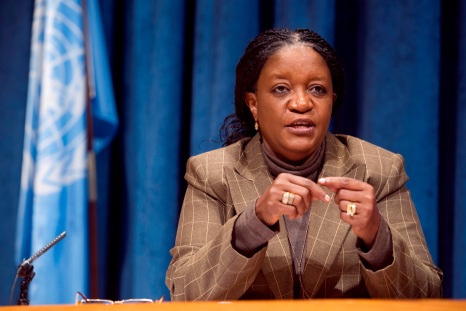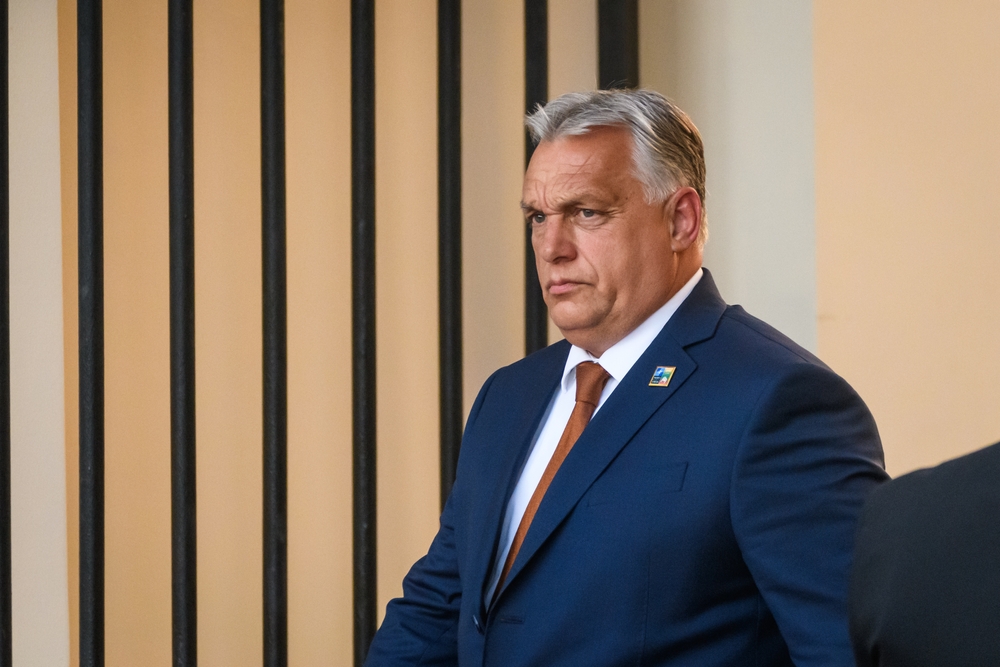Sexual Violence in Conflict: Punish the Perpetrators, Not the Victims

“It is now more dangerous to be a woman than a soldier in modern conflicts.” — Major General Patrick Cammaert, former UN peacekeeping commander
While wars are devastating for all civilians, women and girls are confronted with specific threats because of their gender. Due to deep-rooted gender norms, they are more likely to have their rights trampled upon than their sons, brothers, and fathers. Among the most abhorrent of these abuses are rape and other forms of sexual violence.
As the United Nations special representative on sexual violence in conflict, I hear the harrowing stories of survivors of these crimes every day. Their stories should haunt our collective consciousness. Rape, gang rape, sexual slavery, mutilation of sexual organs, and forced marriage are committed with impunity in many, if not most, armed conflicts around the world.
After being violated, many survivors are victimized a second time by legal systems that trivialize their trauma, and by their families and communities, who shun them rather than the perpetrator. Moreover, the victims and witnesses who dare to come forward and testify often face threats and reprisals.
No child should ever be forced to drop out of school due to the stigma she faces as a rape victim, like the 12-year-old girl I met in the Democratic Republic of the Congo. No survivors of systematic violations in rape camps should ever be forced to meet their perpetrators on the street, in the supermarket, or in their children’s schools, like the survivors I met in Bosnia. No survivor should ever be incarcerated for so-called “morality crimes” after being raped, as are many women held in Afghan prisons.
What these survivors have to go through is one of the great injustices of our time. Putting an end to these atrocities, however, has proved unsettlingly difficult because there is no one-size-fits-all solution.
Ending sexual violence in war requires not only that perpetrators are held to account, but also a long-term shift in social norms and attitudes. This must be ensured both before conflict begins and during peace-building processes so that women can have their rightful say in what society should look like in the aftermath of war.
Ensuring medical, psychosocial, legal, and livelihood support for the victims of atrocities is equally important. This is particularly true for survivors of sexual violence who face utter destitution when they are cast out of their families and communities for being raped.
Wars may end, but the legacy of these crimes lives on. Throughout history, women have been excluded from peace talks, crimes of sexual violence have been sidelined from international prosecutions, and the stigma of rape has been borne by the victims, rather than the perpetrators.
The self-evident truth that women’s participation and safety are crucial to building sustainable peace is slowly changing “politics as usual.” We now see glimmers of hope, even in countries facing colossal challenges.
In the peace process between the Colombian government and the Revolutionary Armed Forces of Colombia (FARC), for instance, survivors have been heard at the peace table and mechanisms for reparations have been put in place.
In the Democratic Republic of the Congo, the president has appointed a special representative to fight sexual violence, and the Congolese armed forces have adopted an action plan, which has spurred new education, training, and capacity-building efforts to end sexual violence.
In Somalia, the president has made a personal commitment to ensure that survivors who report rape will no longer risk being imprisoned, and that a specialized crimes unit and clinic will be created to deal with these cases.
We must learn from these examples if we hope to change the future.
written by Zainab Hawa Bangura, provided to the BBJ by The MarkNews
Zainab Hawa Bangura is the United Nations special representative of the secretary-general on sexual violence in conflict and serves as the United Nations’ spokesperson and political advocate on conflict-related sexual violence. She is also the chair of the network UN Action Against Sexual Violence in Conflict, which coordinates the United Nations system’s efforts to prevent and respond to these crimes.
SUPPORT THE BUDAPEST BUSINESS JOURNAL
Producing journalism that is worthy of the name is a costly business. For 27 years, the publishers, editors and reporters of the Budapest Business Journal have striven to bring you business news that works, information that you can trust, that is factual, accurate and presented without fear or favor.
Newspaper organizations across the globe have struggled to find a business model that allows them to continue to excel, without compromising their ability to perform. Most recently, some have experimented with the idea of involving their most important stakeholders, their readers.
We would like to offer that same opportunity to our readers. We would like to invite you to help us deliver the quality business journalism you require. Hit our Support the BBJ button and you can choose the how much and how often you send us your contributions.









